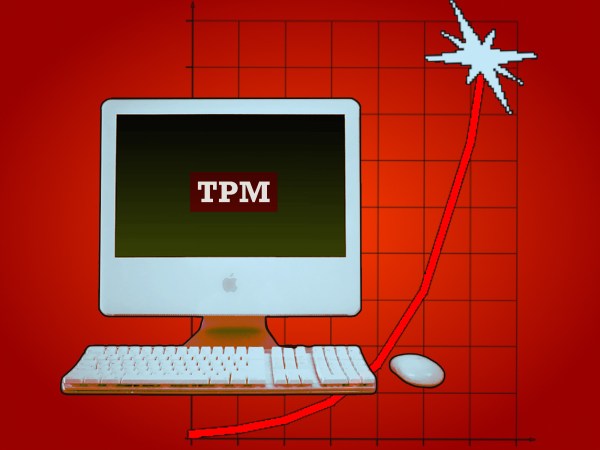Josh Marshall
I can’t go into too much detail without revealing my sources. But I wanted to share that I’ve heard from sources in multiple departments and agencies that the groundwork you’d expect to see in advance of wholesale firings — as promised by Office of Management and Budget Director Russ Vought — simply are not happening: lists for who gets fired and who doesn’t, the reduction in force paperwork, etc. Those things aren’t happening. At least not in the places where the people I’ve spoken to work. At least not yet.
Of course we’re one day in. MAGA isn’t known for good order and process. So it might change. But it is an early signal, by no means definitive, that Vought’s threat of a DOGE 2.0/large-scale firings is one they’re hesitant to carry out … In this Times newsletter, Jess Bidgood relays Karoline Leavitt’s threat that the layoffs are “imminent” and Vought is cueing them up. Trump holds all the power, she continues. “The question is merely how far [Trump] wants to go.” But again, under the hood, in the boiler rooms of personnel policy rather than official statements, it looks different.
From a federal employee. TPM Reader XX1, initials anonymized and portion of letter which notes government agency removed for obvious reasons …
I’m writing here to concur with your last couple blog posts on the shutdown. You put into prose accurately what I’ve been trying to get across to so many local political allies who overthink irrelevant minutia. They focus on the timing of the fight, on the details of the substance, etc. None of that matters, as has been apparent to me all along. This is, in fact, an arm-wrestling match, purely a battle over power. The Democrats’ goal should be to extract a material concession that resonates to the broad masses as a “public good,” and they are doing that with ACA subsidies. Successfully extracting a concession is a material victory that slightly restores just a little bit of balance of power, and blocks Trump’s effort at totalitarian control.
None of us knows how long this will go, and it can easily take on a life of its own where in a couple weeks we still have no off-ramp for either side, and it’s beyond what anyone involved intended. THAT’S OK. Congressional Democrats’ responsibility is to embrace that, and improvise on the fly on the politics and substance in working toward a final resolution. If this is a weeks-long battle, that’s OK. Finally, there is nothing more self-damaging Trump can do than to carry out his threat of mass layoffs. This, too, is something to many of my local political compatriots fail to read correctly, as they fear it, just as Trump intends. I keep pointing out that this is a disaster for him, because it’s immediate blowback in his face as transparent damage to the public purely out of personal vengeance. Too many people have let themselves become hypnotized into irrational fear…incluidng, for the entire year until now, Congressional Democratic leaders.
We need a climactic fight to establish a new equilibrium. This might not prove to be it. But it’s one required step.
This is a post about TPM. So that’s just as a heads-up. It’s not about the news of the moment. It’s inwardly looking about this website.
On Friday, I did an interview tied to our 25th anniversary celebration. It should be out closer to the date of the anniversary in mid-November. Toward the end of the conversation, the interviewer asked me if I thought TPM had stayed true to the vision I originally had for it and, if so, what that was. I began by referencing a point I’d made earlier in the interview which was that it couldn’t be true to the original vision because I didn’t have any clear sense of what I was trying to do at the beginning. But pretty quickly I did. When I thought about the site and its continuity I realized there are three things that make up TPM. Oddly, in the interview, I only mentioned two of them. I probably just lost my train of thought. It was toward the end of an hour-long interview. But I wanted to share with you what those three things are.
Read More

I’ve written several times over the last few days not only about the scourge of political violence which we must not only denounce but be genuinely against in every way. Notwithstanding my own personal inclination to say little of the dead for a respectful period, I want to note a particular dynamic that the right is creating in the reign of firing terror it’s unleashed in the aftermath of Kirk’s death. On X over the last few days, countless numbers of high-profile right-wing accounts’ feeds are made up almost entirely of screen grabs of random people’s reactions to Kirk’s murder and demands that they be fired from their jobs. In many cases the demands are heeded and then that fact is triumphantly posted as well.
Needless to say, when people do this they’re not only trying to get these individuals fired but are also unleashing a wave of harassment, doxxing and possibly worse. It’s all intentional. Sometimes the reactions they’re highlighting are legitimately gross, even awful. More often they’re just rude or unkind. And in many cases they’re simply not sufficiently reverent or respectful. I’ve seen a number of cases where it’s simply saying explicitly that the killing was wrong but also all the very real reasons why Kirk’s role in our public life was bad, malignant, destructive, etc. It runs the gamut.
Read More







